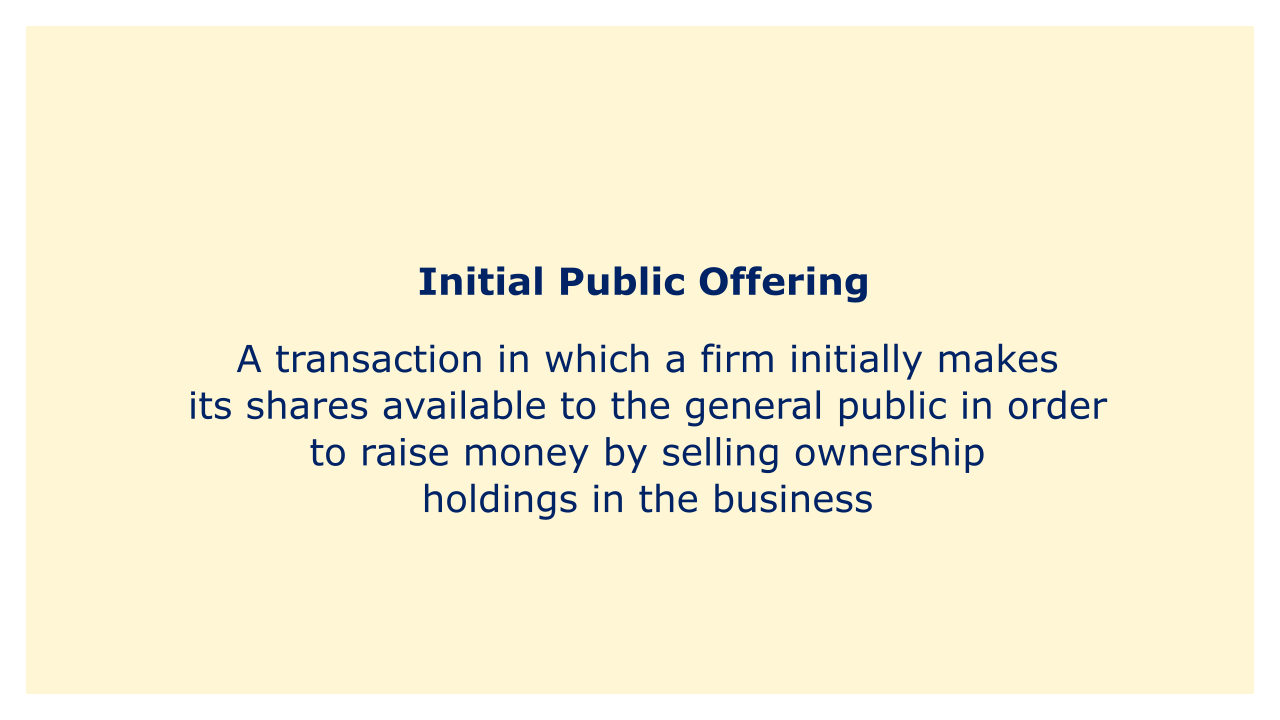 |
| Image: Moneybestpal.com |
An initial public offering (IPO) is a transaction in which a firm initially makes its shares available to the general public in order to raise money by selling ownership holdings in the business. Businesses often list on the stock market to seek money for expansion, debt repayment, or to offer liquidity to current shareholders.
The hiring of an investment bank or group of investment banks to serve as underwriters is the first step in the IPO process. The underwriters carry out due investigation on the business's finances and assist in determining the ideal IPO price range. Additionally, they aid in promoting the service to other prospective customers as well as institutional and individual investors.
When a firm does an initial public offering (IPO), it often issues new shares of stock that are then sold to the general public through an auction or another mechanism. Following the initial public offering (IPO), the company's stock is traded on a public stock exchange like the New York Stock Exchange (NYSE) or Nasdaq.
If the stock price increases after the offering, IPO investors may profit. IPOs can be dangerous investments, though, as the share price may fall after the sale if the market loses faith in the company's future prospects.
Ultimately, IPOs are crucial to the financial markets because they allow businesses to acquire money and give investors access to fresh investment options. However, going public may be expensive and complicated, so businesses should carefully weigh the advantages and disadvantages before making the decision.
